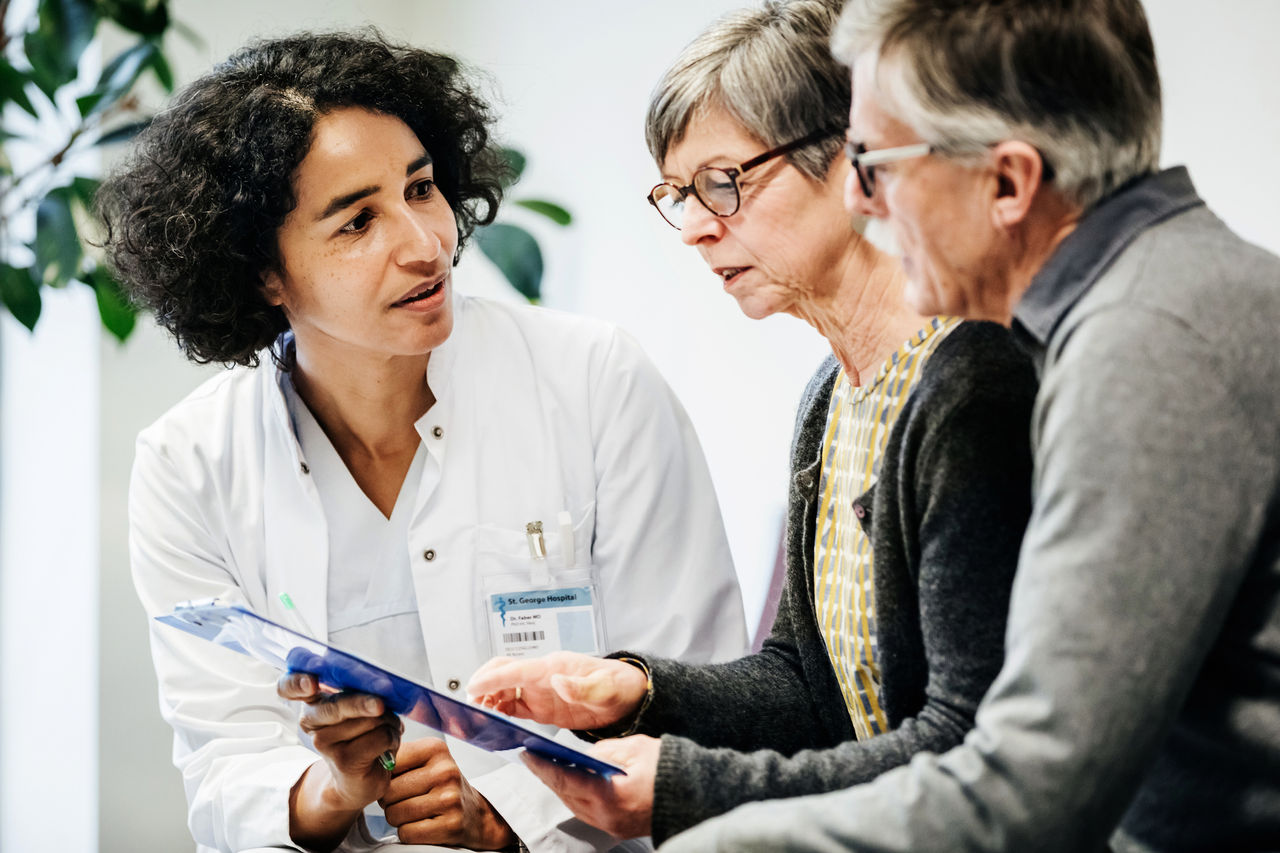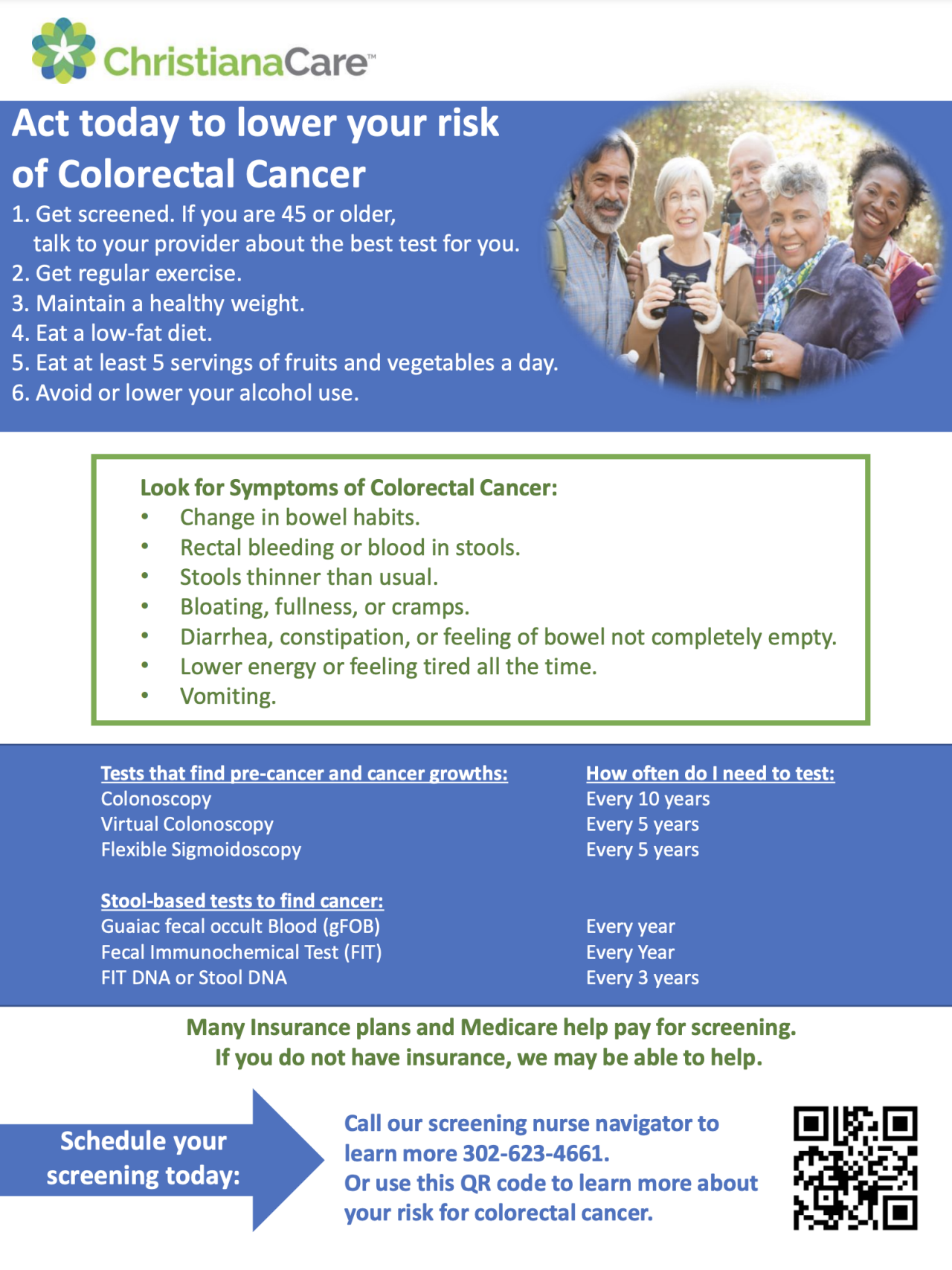Login
Lower Your Risk
Colorectal cancer includes cancers of the large intestine (colon), the lower part of the digestive system and the rectum. Colorectal cancer does not always have symptoms so it is important to have your colon checked. The American Cancer Society recommends that people at average risk of colorectal cancer start regular screening at age 45.
Click here to Find a Doctor or call us at 800-693-CARE.
Screening for Life and Health Care Connection
Don’t let lack of insurance or copays keep you from getting screened!
Screening for Life and the Health Care Connection Screening for Life provides payment for cancer screening tests recommended by your doctor if you meet age, income and insurance guidelines. This program is a cooperative effort of the Delaware Division of Public Health and the U.S. Centers for Disease Control and Prevention (CDC).
The Health Care Connection simplifies the eligibility screening process to help uninsured Delawareans access primary care and medical specialists, disease prevention services — such as cancer screenings — and helps ensure access to prescription programs, laboratory and radiology services.

To learn more, call 302-733-HOPE or visit Screening For Life or the Health Care Connection & Voluntary Initiative Program.
Additional Resources
Related Content
Contact Us
Helen F. Graham Cancer Center & Research Institute
4701 Ogletown-Stanton Road
Newark, DE 19713



